Rizvi has a long history of resorting to racism accusations against those who argue for lower (historical) levels of immigration, not the “mass immigration” Australia has experienced since 2005 (for example, see here, here and here):
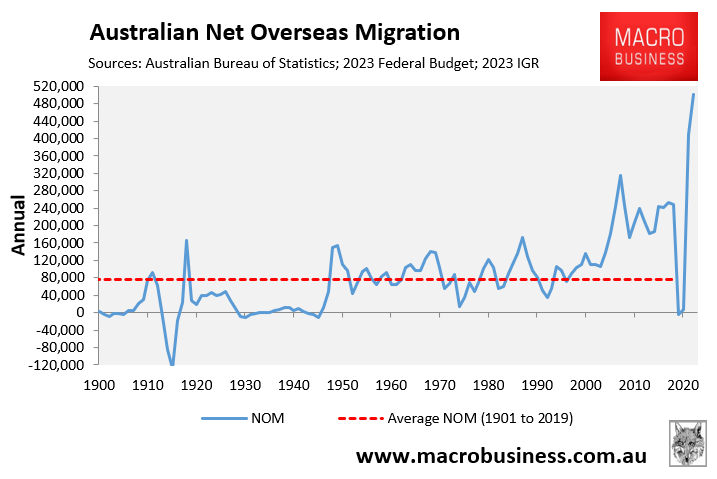
Last week, I wrote an article calling on the federal government to levy higher education providers per international student enrolment, alongside requiring universities to provide on-campus accommodation in proportion to their international student enrolments:
Australian universities are non-profit organisations and currently do not pay tax (unlike other ‘export’ industries). This is despite universities acting like corporatised, profit-maximising businesses with senior leadership groups that get paid exorbitant salaries.
The universities, rather than taxpayers, are therefore ‘clipping the ticket’ and collecting the economic rents from Australia’s immigration system via student fees.
A levy on international students would ensure that Australians receive a financial cut from the trade, similar to how a sovereign wealth fund collects revenue from mineral exports.
In addition to a levy, the federal government should require that universities provide on-campus accommodation for international students in proportion to the number of enrolments.
This would take direct pressure off the rental market and ensure that the costs and benefits to universities and Australians from the international student trade are more aligned.
We must end the situation where Australian tenants are being driven into financial stress, forced to live in share housing, or pushed into homelessness while Australia’s universities make out like bandits from record international student enrolments.
We must stop universities from privatising the gains from record immigration while the costs are pushed onto Australians at large, most notably renters.
Once again, Abul Rizvi resorted to the racism card:
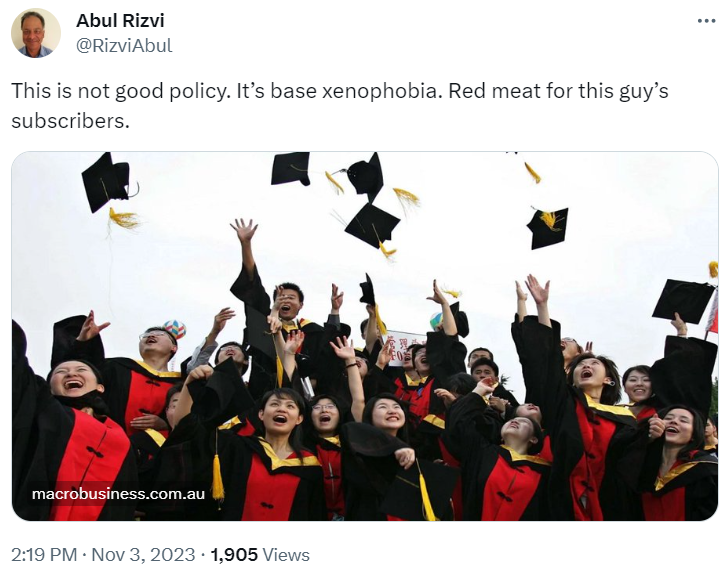
Rizvi doubled down on his racism accusation when pulled up by a commenter:
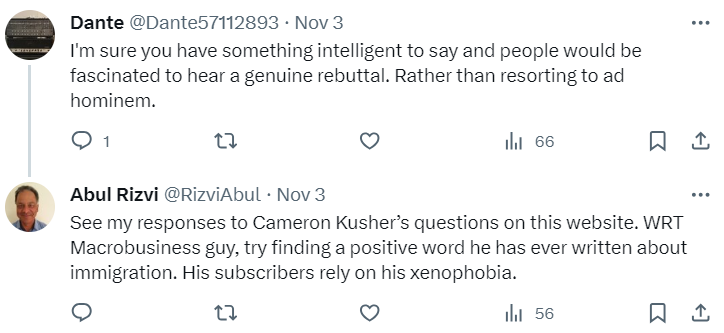
PropTrack’s Cameron Kusher questioned why my proposal was bad, which Rizvi provided no real answer:
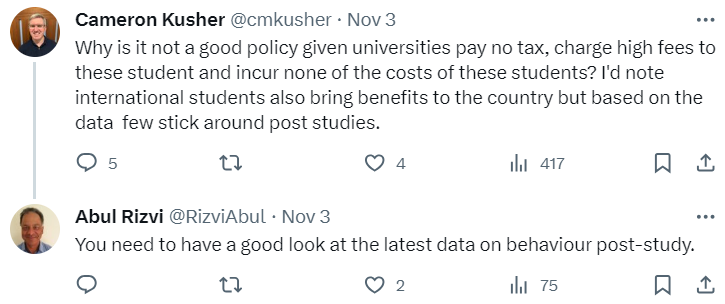
Hilariously, Rizvi also contradicted himself by stating that “universities are not focused on wider immigration policy objectives. They care about profit maximisation”:
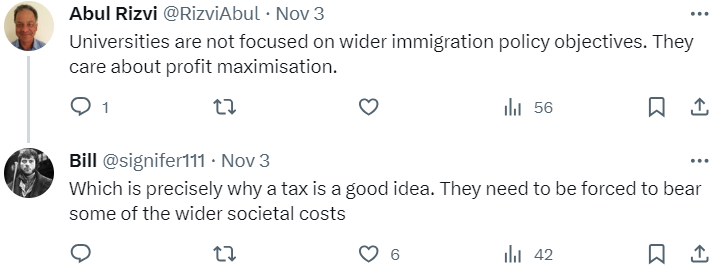
Earth to Abul: this is exactly why universities should be levied, to ensure that they wear some of the negative externalities from the international student trade, rather than only privatise the benefits.
Only the week prior, Rizvi waxed lyrical on why international student numbers are too high and must be cut:
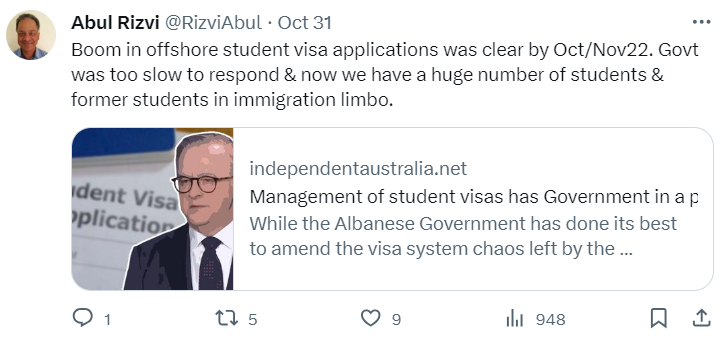
This suggests that it is only not “racist” or “xenophobic” to call for lower immigration when he does it.
It is a wonder anybody still listens to Rizvi, given he has been wrong all year on immigration, badly underestimating migration numbers and claiming that everyone else is wrong (see here, here and here).
Here is a genuine question for Abul Rizvi: Does he believe that Australia has coped well with the 7.5 million population increase this century, driven by record net overseas migration?
Moreover, does Rizvi believe that Australia will cope well with another 14 million population increase over the next 40 years, as projected in the latest Intergenerational Report?
This level of population increase would be the equivalent of adding the combined populations of Sydney, Melbourne, Brisbane and Adelaide in only 40 years.
Put away the creepy racism dog whistle, Abul Rizvi. You must be better than that.
Australians are not anti-immigration per se. They just don’t support immigration at the extreme levels that we’ve experienced since the mid-2000s. Because we have lived through the consequences.

